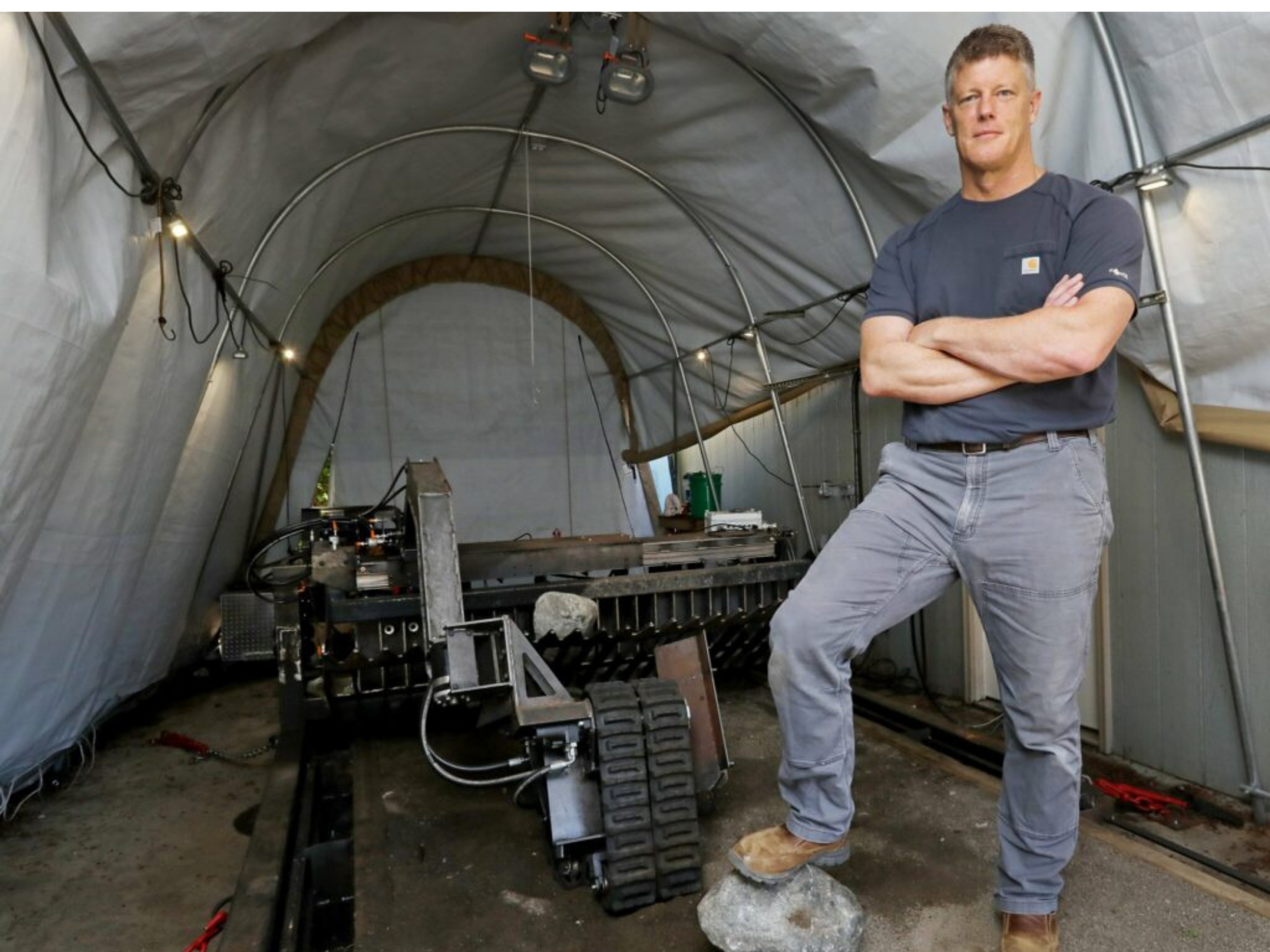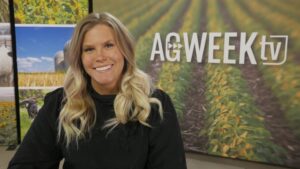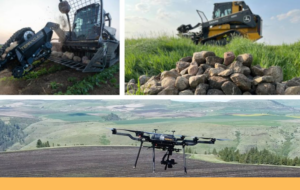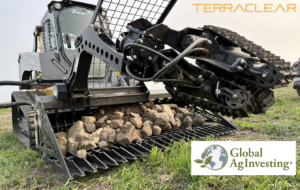When Bellevue entrepreneur Brent Frei returned to his family’s farm four summers ago, where he was born and raised, his father asked if he could help out by collecting loose rocks in the fields. So Frei grabbed his gloves and spent the next several days tromping through dusty fields in central Idaho’s dry heat.
Rocks are a routine problem for farmers. They often get caught in machinery, causing damage. Some tools exist for picking them up, but farmers regularly do the job by hand.
Frei said he must have collected thousands of rocks that week, some the size of footballs and others bigger than car tires. Even at 6-foot-7-inches and having played football in college as a defensive tackle, Frei became exhausted by the ordeal.
“Picking rocks, in some ways, could not be more boring. It is the worst job on the farm,” said Frei.
In the evenings, Frei, who had built two successful software businesses, scoured the internet for a better solution. “I kept asking, ‘Why are most of the designs of [rock] pickers really just iterations from the 1960s?’” He even started thinking about how to destroy rocks, instead of just picking them up. He researched grinders, pulverizers and even lasers. Nothing was going to work the way he wanted. He figured: Now was the time to start a third business.
Later that year, Frei co-founded TerraClear. The company, jointly based in Bellevue and Grangeville, Idaho, is developing an automated, robotic machine that helps farmers pick rocks from their fields. Last month, TerraClear announced that it raised $25 million in an early-stage financing led by Seattle-based Madrona Venture Group. In total, TerraClear has raised $38 million to date. Frei, who is CEO, said the company will use the latest financing to continue improving the design of its product.
TerraClear’s robotic arm attaches onto a common farming vehicle called a compact track loader, more informally known as a “skid steer.” At the end of its arm is a claw with conveyor belts that engulf the rock, pulling it into the machine’s collection basket.
Current prototypes require drivers to operate the robotic arm with a joystick. But TerraClear is also developing software that maps the size and location of each rock on farms with drones that fly over fields. The goal is to create technology that can locate rocks and remove them with an autonomous vehicle, without needing anyone to operate the machine. Frei said such hardware and software has been combined only for expensive and intricate tasks on farms, such as picking fruits.
In the decades to come, the company also has aspirations to make a device for picking plants and crops. Frei says it’s better “if you can start with low-cost software that can get more complex” than to “take very complex software and commercialize it for the masses.”
Frei, 55, has a habit of spotting mundane problems that have massive markets. At 28, he co-founded Onyx Software to help companies manage customers through the sales process. In 1999, he took Onyx public during the dot-com boom. He left the company two years before it was acquired in 2006 by a larger software company, Consona, then called M2M Holdings, for about $92 million. In 2005, Frei co-founded Smartsheet because he could never find a project management software that worked the way he or his peers wanted. Smartsheet went public in 2018 and now has a market capitalization hovering around $9 billion. Frei remains on Smartsheet’s board of directors.
TerraClear estimates there are 400 million acres of land worldwide suitable for growing crops. Frei estimates more than half of those acres have rocks on them. The company says damage to machinery can cost farms $5,000 to $150,000 a year or more.
And clearing rocks once doesn’t mean the problem ends. Running farm equipment through fields regularly unearths new rocks from under the soil, as do vibrations below ground.
Winters add to the problem. When moisture gets into the ground and turns to ice, it expands and moves rocks, said Jonathan Russell-Anelli, a soil scientist at Cornell University’s College of Agriculture and Life Sciences. When that ice melts, rocks typically move upward, rising to the surface.
TerraClear isn’t the first company to sell rock pickers. Some companies make “rock rakes,” which also attach to farm vehicles and mechanically rake rocks into a crate. There are also “rock reels,” or industrial-looking farm vehicles that work like a giant dust pan, sweeping rocks off the ground.
But like each of Frei’s prior ventures, TerraClear plans to offer a better product than what is already for sale.
TerraClear’s rock picker minimizes the disruption of soil underneath the rock, leaving the ground virtually untouched. Ben Hesse, a farmer in Moses Lake who recently tested TerraClear’s rock picker, said this feature is important because farmers carefully maintain their soil to optimize plant growth.
Hesse, who owns several other rock pickers, was surprised at how precise TerraClear’s picker is. He added it was faster than expected. TerraClear says its machine can pick up 400 rocks per hour, and can handle rocks that weigh up to 300 pounds.
This spring, TerraClear tested its product with nearly a dozen other farmers nationwide.
Frei said most of them asked to buy the tool afterward. “We’re saying, ‘It’s not a final version,’” he said, “and [farmers] are saying, ‘I don’t care.’ They’re hearing all the caveats and they’re still asking for it. That’s the level of the pain.”
TerraClear is slated to test its rock picker with 40 more farmers in the fall, along with ongoing tests for the mapping software and service. Trevor Thompson, president of TerraClear, said the company in 2021 is focused on “getting the product perfect,” and selling widely will be a priority for 2022. The company says the pricing of its rock picker is a moving target but will probably end up at about $30,000. TerraClear declined to disclose information on sales, profitability or the company’s valuation.
Michael Brady, an agricultural economist at Washington State University, said TerraClear is taking advantage of a growing trend in agriculture technology, or ag tech, that treats each area of farmland differently, based on its specific needs and topography. Brady also said that the use of drones and imaging are popular emerging technologies for farms.
In the first three months of 2021, venture capitalists invested $1.5 billion in ag tech, the fourth straight quarter at least $1.5 billion was invested in the sector, according to a PitchBook report. The report also said computer vision ― the technology with which machines can detect, analyze and interpret their surroundings ― has become more widespread in farming.
Brady said it is difficult for farmers to quantify how much money they spend on rock picking every year, given that it gets lumped in with other maintenance costs. Still, the time savings that a robotic rock picker might offer are crucial. “Farmers work a lot of hours. … Any minute saved on one activity can be used elsewhere on the operations,” he said.
Matt McIlwain, managing director at Madrona Venture Group and a TerraClear board member, said the firm invested in TerraClear because it was using software, machine learning and automation to solve “physical” problems in agriculture and farming. It “might have not been possible five, 10 years ago … We weren’t far enough along.”
McIlwain ― who also led Madrona’s early investment in Smartsheet ― said Frei’s track record for building strong teams was another big reason for Madrona’s investment in TerraClear.
With every venture, Frei has demonstrated a willingness to entrust employees with projects that “may feel bigger than they can take on,” said McIlwain. “Most of the time, those folks have risen to the occasion.” McIlwain pointed out that a number of former Onyx and Smartsheet employees that Frei hired have gone on to attain senior positions in other companies, start their own ventures, or join him at TerraClear.
Ron Frei, Brent’s father, 84, and still running his farm of 56 years, said he wasn’t surprised that his son returned to the farming sector after all these years. Brent Frei “spends as much time as he can helping” around the family farm, Ron Frei said.
Brent Frei seeks his father’s feedback on TerraClear’s technology at every step. Ron Frei said early prototypes were “too complicated” and needed to be easier to use.
When asked how it feels to have his technology career come full circle, back to farming, Brent Frei points to a joke one of his college friends recently made on LinkedIn: “I’m willing to bet [Brent’s] entire professional tech journey was nothing more than preparation to solve this problem.”
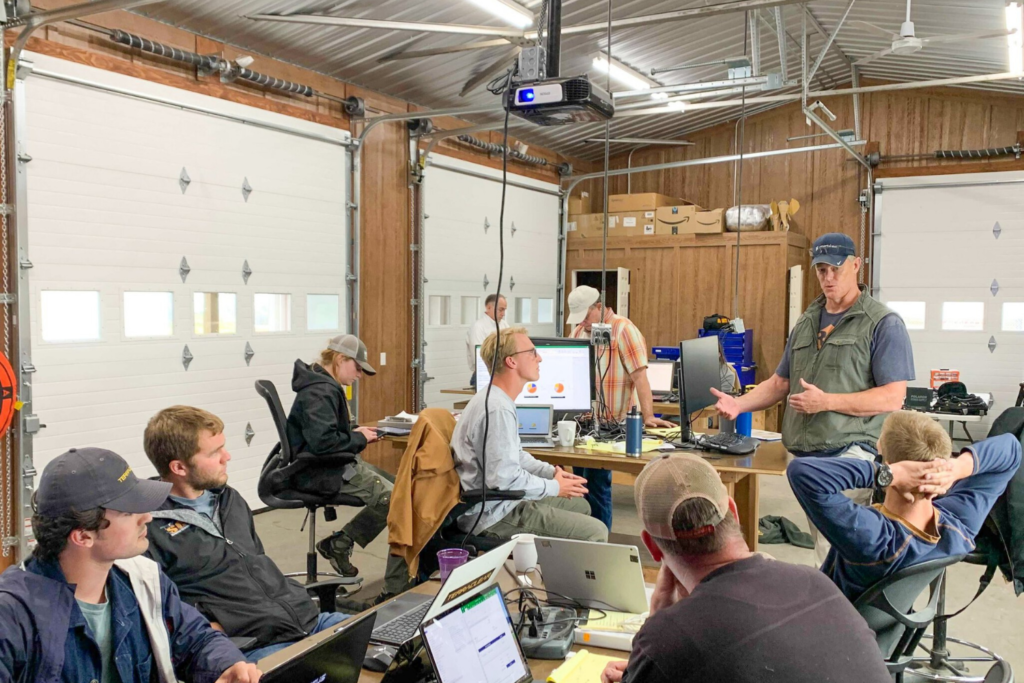
Brent Frei speaks to TerraClear team members at the company’s lab facility in Grangeville, Idaho. 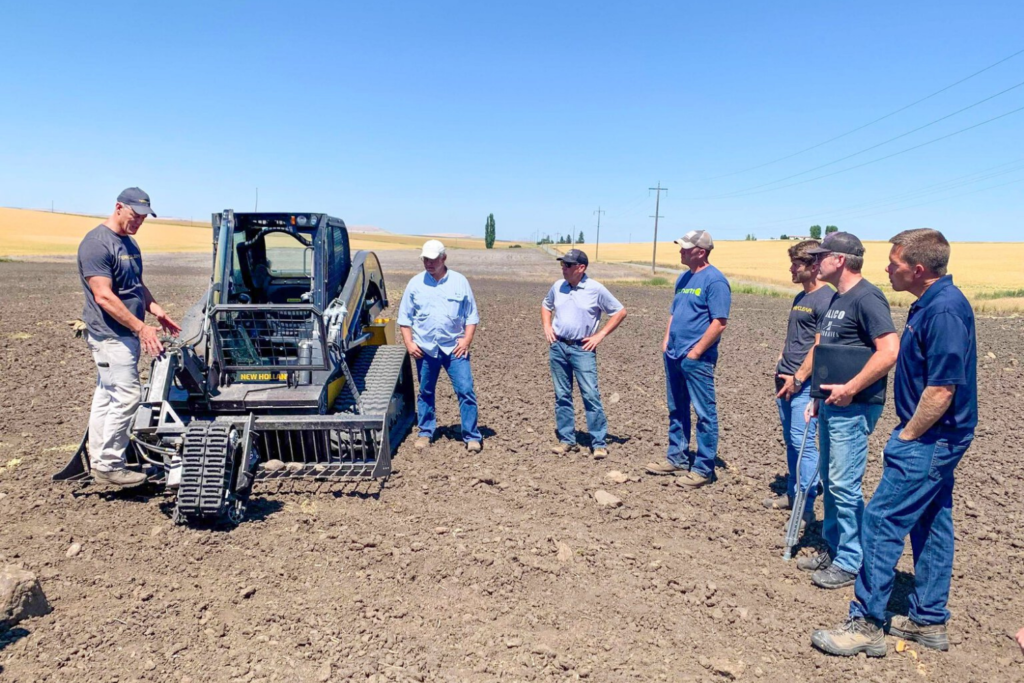
Brent Frei demonstrates TerraClear’s rock picker to a group of engineers.
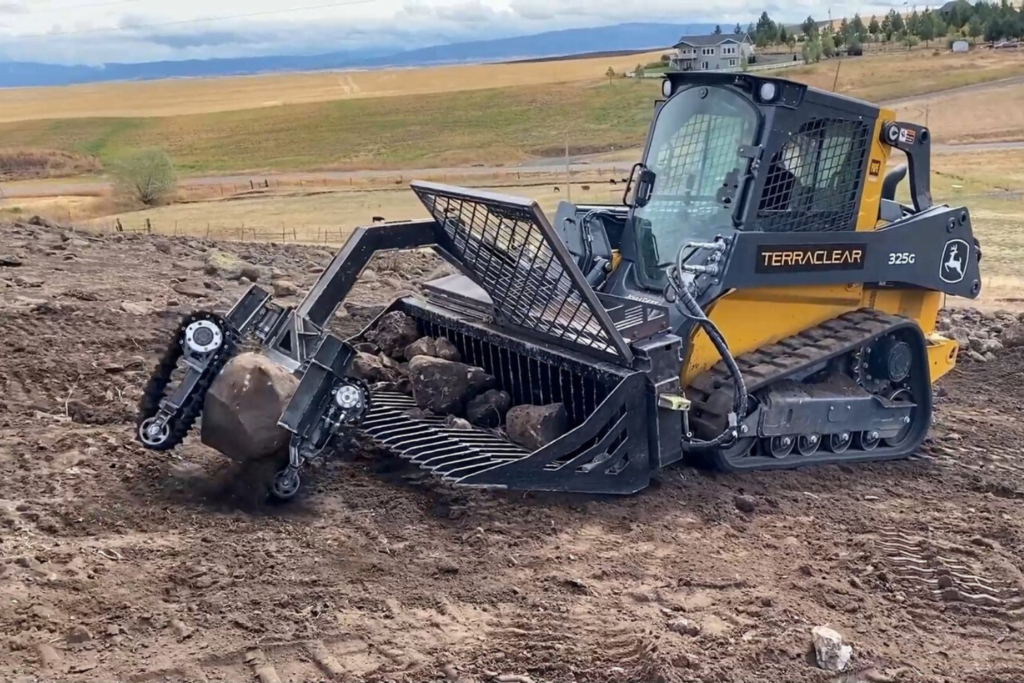
TerraClear’s robotic arm attaches onto a common farming vehicle called a skid steer, engulfing rocks with conveyor belts and pulling them into a collection basket. 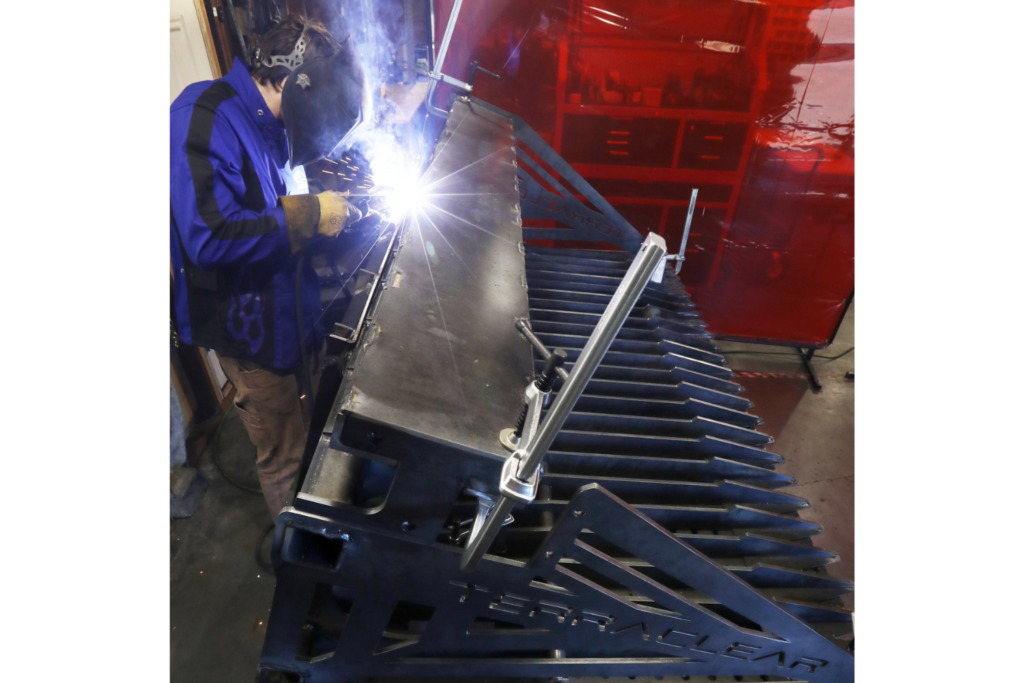
TerraClear mechanical engineer Austin Chmelik this month welds a basket that will attach to the company’s robotic arm for clearing farming fields of rocks.
